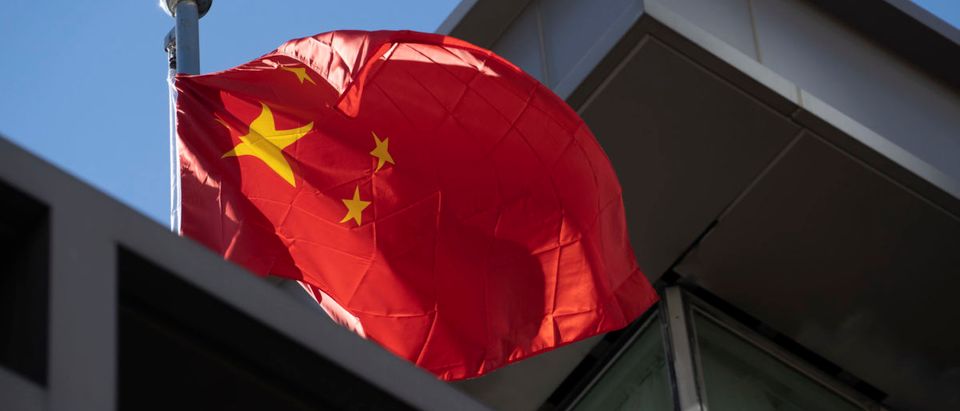The U.S. Senate passed the massive $280 billion semiconductor chip bill Wednesday that could serve China more than the American semiconductor manufacturing industry it aims to prop up.
On the surface, the U.S. Senate passed the CHIPS-plus bill that shells out tens of billions of dollars to the semiconductor manufacturing industry to boost American competitiveness against heavy Chinese opposition.
A deeper look inside the bill shows the Senate stripped it of important protections included in previous versions that ensured the U.S. the advantage. (RELATED: Despite Leadership Opposition, 24 Republicans Help Send CHIPS Package To Biden’s Desk)
The bill does bar any entity that receives financial assistance from the federal government from engaging “in any significant transaction” with the Chinese Communist Party (CCP) or any foreign adversary for 10 years after the sum has been awarded.
However, it provides wide carve-outs, like allowing companies to continue funding CCP semiconductor manufacturing as long as the technology is considered “legacy” or is of the 28-nanometer generation or older.
China’s semiconductor manufacturing industry lags the global market, meaning almost the entire Chinese semiconductor industry qualifies as a “legacy” exemption.
(2/4) The vast majority of the OVER $200 billion spent in this bill has nothing to do with semiconductor manufacturing.
— Congresswoman Debbie Lesko (@RepDLesko) July 29, 2022
International Data Corporation vice president Mario Morales told CNBC’s Squawk Box Asia in January that China’s semiconductor industry is “three or four generations” behind competitive technology.
“I still believe that [China is] probably three or four generations behind what is considered leading edge. … They have capabilities to support 28-nanometer and they’ve started some sampling of 14-nanometer,” Morales told CNBC. “But, the reality is that they need customers to really scale that capability, and a lot of the Chinese ecosystem is just not using that technology.”
Morales told CNBC that China needs “U.S. partners and customers or European customers, or even Taiwanese customers” to provide an influx of capital to help scale down the cost of improving their infrastructure and “ramp [the] technology effectively.”
(4/4) It is also irresponsible to spend nearly $280 billion and add $79 billion to our national deficit at a time when our nation is entering a recession and Congressional Democrats are pushing to spend billions more through another partisan reconciliation package.
— Congresswoman Debbie Lesko (@RepDLesko) July 29, 2022
The U.S. Senate’s bill directs the National Science Foundation (NSF) to effectively be the primary gatekeeper between Chinese intelligence and the advancing U.S. semiconductor industry while also allowing it to award grants to entities, including higher education institutions that partner with the CCP-controlled, Confucius Institutes.
FBI Director Christopher Wray called Confucius Institutes “a platform to disseminate Chinese government or Chinese Communist Party propaganda to encourage censorship to restrict academic freedom” during a 2019 U.S. Senate hearing.
The bill states that the NSF is to “ensure proper security controls are in place to protect sensitive information” while leveraging “resources and expertise” from several federal departments and private sectors, including U.S. colleges and universities.
Although the U.S. Senate bill states that “none of the funds made available to [NSF] … may be obligated or expended to an institution of higher education that maintains a contract or agreement between the institution and a Confucius Institute,” it allows an exception.
The NSF is allowed to award U.S. taxpayer funds to institutions collaborating with a Confucius Institute after the National Academies “determines such a waiver is appropriate,” the bill states.
The Daily Caller reached out to the National Science Foundation about the CHIPS-plus bill allowing an exemption for the Confucius Institute and whether the foundation has plans to collaborate with the CCP-backed institution.
“NSF promotes principled international collaborations and does not have partnerships with Confucius Institutes,” responded an NSF spokesperson. “NSF will continue to encourage principled international collaboration with provisions for security and adherence to the law in place.”
Protecting American universities from the CCP’s malign influence is essential to academic freedom. We exposed Confucius Institutes for what they really are: hubs for disinformation and propaganda arms of the CCP. They are being closed fast across America. #NotTiredofWinning pic.twitter.com/1pdOjn8nia
— Secretary Pompeo (@SecPompeo) January 16, 2021
U.S. colleges and universities that began breaking away from the Confucius Institutes during the Trump administration (when the institution’s funding was directly connected to China’s communist government) have welcomed it back under a different name, the Beijing Language and Culture University, reported the National Association of Scholars.
Several U.S. colleges and universities, including Georgia State University, Western Michigan University, University of Washington, Western Kentucky University, and Arizona State University, have allowed these new partnerships, which provide “fiscal support” and allow the Chinese government to hand pick scholars for U.S. visas, the NAS reported.


